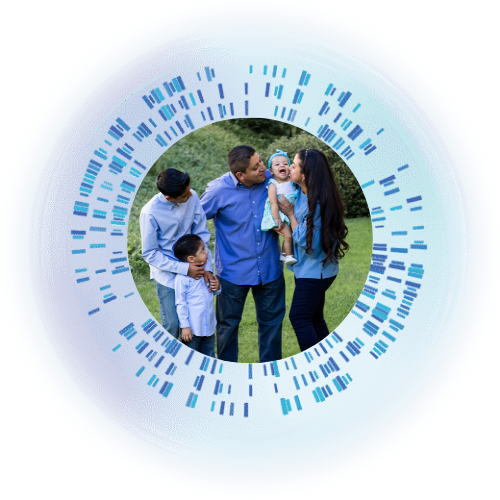
 Our daughter was just a few days old when she received a life-saving diagnosis
through genomic testing.
Our daughter was just a few days old when she received a life-saving diagnosis
through genomic testing. 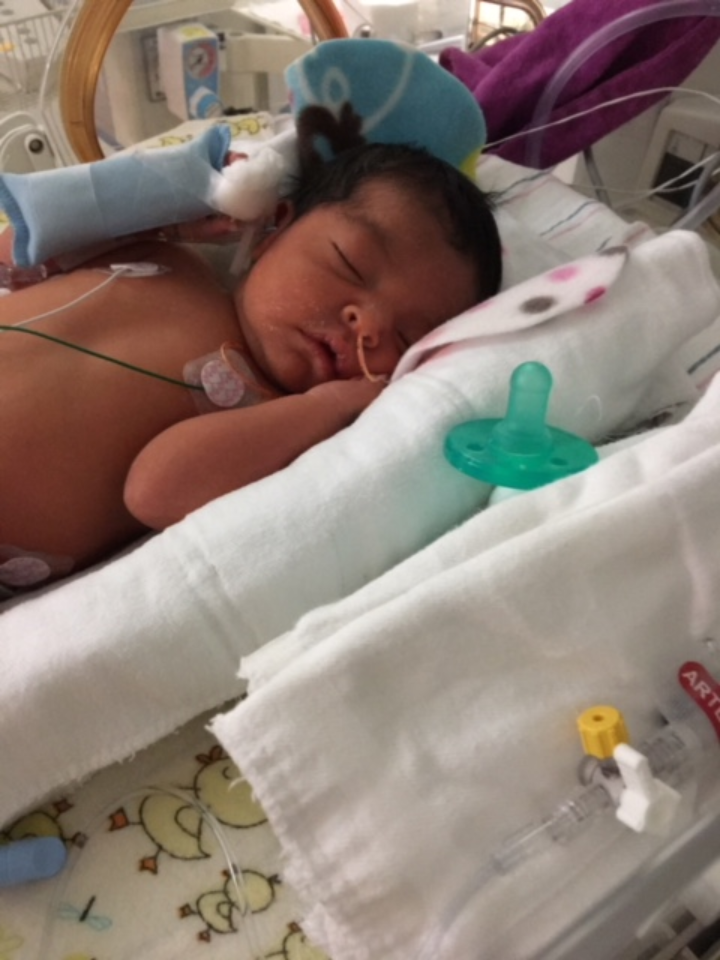
Sebastiana is not yet 24-hours old when she is admitted to the Rady Children’s Hospital neonatal intensive care unit. She’s unable to eat due to seizures and is rapidly failing. She is two days old when whole genome sequencing is ordered.
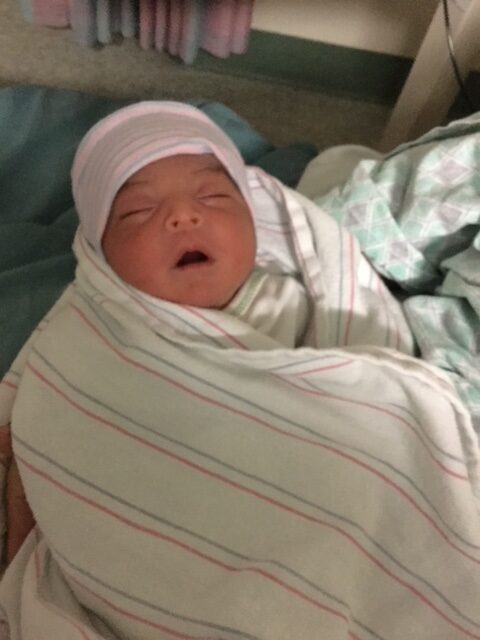
WGS reveals a novel mutation in the KCNQ2 gene. She is the youngest child to be diagnosed with this. The information allows the neurologist to tailor her treatment to stop her seizures and put her on the road to recovery.
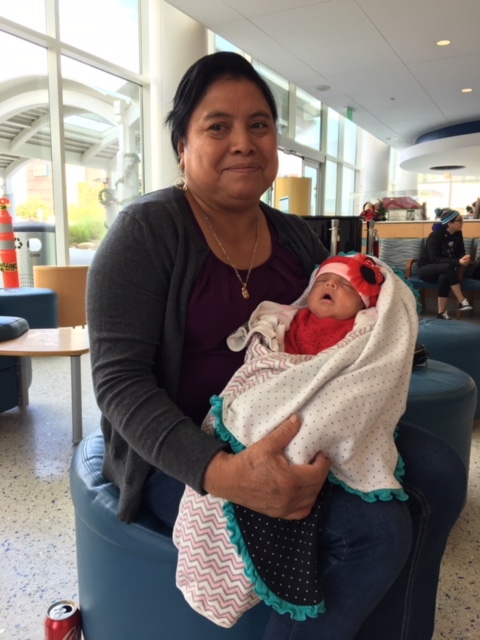
No longer seizing following the change in medication, Sebastiana is finally able to eat and gain strength. Two weeks later, her happy grandmother cradles her as she prepares to leave the hospital.
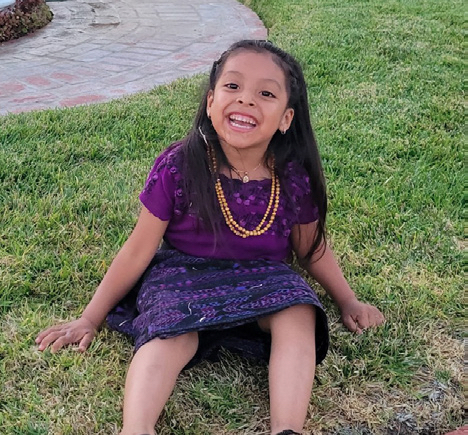
Sebastiana continues to be seizure free. While she has a few physical complications and developmental delays associated with the seizures she had as a baby, Sebastiana has made great progress in therapy. Her mother, Dolores, says Sebastiana is a helpful and imaginative girl – she loves helping clean up after dinner and pretending she’s Anna from the movie Frozen. She has equine therapy once a week and adores horses. She also enjoys singing and drawing and loves to read a book every single night.
Dolores is deeply grateful to Dr. Stephen Kingsmore and all the other providers who have helped Sebastiana. “To see her start kindergarten, after worrying she might not live or may have to be in a hospital her whole life,” she says, “it’s just the best feeling in the world.”
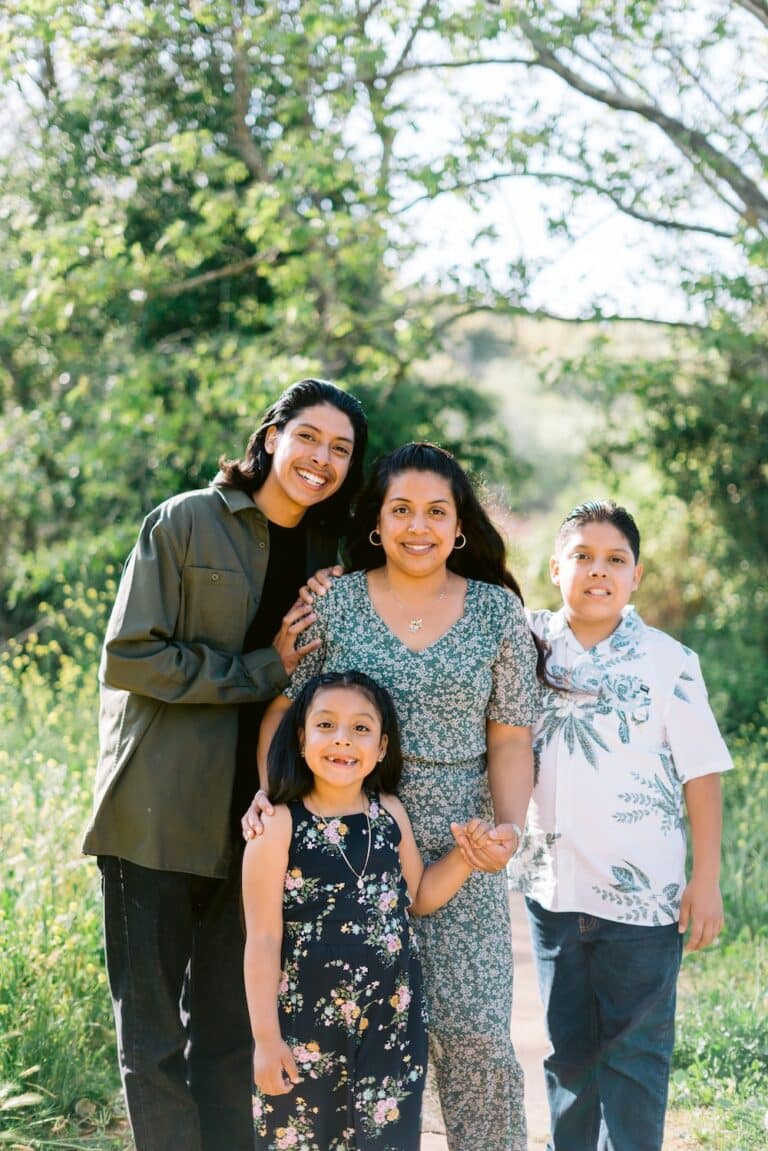
Today, Sebastiana loves going to school and her teacher describes her as a “perfect student” who loves to tell stories and dance. Her mother Dolores describes her as a strong girl who stands her ground with her two brothers.
Sebastiana’s older brother, after watching her experience, is now enrolled in college and working towards studying medicine – possibly genomics.
© 2025 Rady Children's Institute for Genomic Medicine.